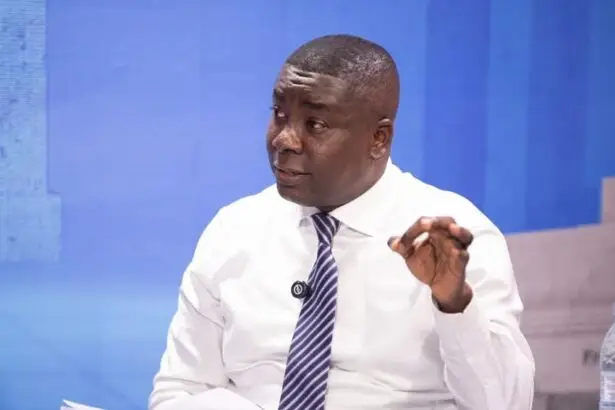The Member of Parliament for Tano North, Dr Gideon Boako, has highlighted the transformative impact of digitalisation on Ghana’s economy, calling for due recognition of former Vice President Dr Mahamudu Bawumia’s role in spearheading this shift.
Speaking during the debate on the 2025 Budget Statement, Dr Boako stated that, for the first time in Ghana’s history, economic growth has been significantly driven by digitalisation rather than traditional sectors such as cocoa, gold, and oil.
He recounted how Ghana had long depended on these natural resources, with little success in diversifying beyond them.
“Mr Speaker, throughout my formative years, I was taught that the backbone of Ghana’s economy was cocoa, gold, and later oil. For years, we struggled to find a way to properly diversify beyond these resources,” he said.However, he noted that recent economic data from the Ghana Statistical Service (GSS) had revealed a remarkable shift in the structure of Ghana’s economy.
According to Dr Boako, reports from the GSS indicate that in 2024, Ghana’s economy grew by a record 1.2 trillion cedis in nominal terms.
“For the first time, the massive growth recorded in 2024 did not come from cocoa, gold, or oil but was driven by data and SMS transactions—that is, digitalisation,” he explained.
He described this milestone as a turning point in Ghana’s economic development, marking the rise of technology and digital services as a key driver of growth.
Dr Boako credited this economic transformation to the digitalisation agenda led by the previous administration, particularly the efforts of former Vice President Dr Mahamudu Bawumia.
“Mr Speaker, digitalisation efforts championed by the former Vice President over the last eight years have significantly contributed to this economic growth, and he must be commended,” he stated.
During his tenure, Dr Bawumia was instrumental in rolling out several digital initiatives, including the Ghana Card integration, mobile money interoperability, the digitisation of government services, and the promotion of cashless transactions. These initiatives, Dr Boako argued, have now become the backbone of Ghana’s economic growth.

